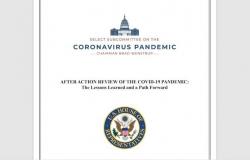In 2024, statistics show clear progress in the fight against HIV/AIDS. But respect for the rights of HIV-positive people remains a major issue.
According to the latest United Nations report on HIV/AIDS published on November 26, 2024 by UNAIDS, much progress has been made. These advances have been remarkable in sub-Saharan Africa, the epicenter of the epidemic. However, the report entitled “Let’s follow the path of rights” highlights the need to guarantee the rights of people living with HIV/AIDS to accelerate the elimination of the disease.
Stigma and its direct consequence of discrimination remain the two main human rights violations faced by people living with HIV. This state of affairs has the effect of increasing their vulnerability by reducing their access to care and other available support.
This is what Larissa Zomassi, legal assistant at Plan international Benin, explains. “If there is no respect for human rights, there will be greater vulnerability and this will further increase the pandemic. Respecting the rights of people living with HIV/AIDS is therefore essential to help reduce their vulnerability. specifies the lawyer, guest on our show “5 sur 7 Matins” this Tuesday, December 3, 2024.
Read also: Fight against HIV/AIDS: Benin on track to achieve global goals
Raise awareness and repress
Larissa Zomassi, who works at the Center for the care of people living with HIV/AIDS at the Hubert K. Maga National Hospital and University Center (CNHU-HKM) in Cotonou, believes that strengthening awareness can help reduce non- respect for the rights of HIV-positive people.
“Our current work is aimed at all people, whether they are living with HIV/AIDS or not. But we are increasing our awareness sessions for the former to be able to make them aware of their rights”said Larissa Zomassi. In the absence of specific provisions protecting key populations such as men who have sex with men, sex workers, transgender people, they benefit from special attention.
“We offer legal awareness and consultation services on legal issues and also legal support when we are faced with acts of insult, for example. We support the victim before the repressive authorities”, assure Larissa Zomassi.
Read also: Fight against AIDS: Benin’s results presented at the Kigali summit






